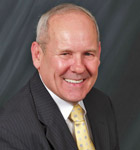In 2005, when cash was flowing, the top-earning employees of wealth-management firm JMG Financial Group, Ltd. took a major pay cut for the greater good. Prior to that, per the industry standard, JMG’s advisers had been rewarded a substantial percentage of the revenue they generated. “You eat what you kill; that was the mentality,” says Marita A. Sullivan, principal and CEO of the Chicago-based group specializing in investing, wealth structuring, and tax-and-estate planning.
The winner-takes-all mindset, Sullivan explains, failed to contribute to the long-term success of the firm. For a small-sized office such as JMG, which has 46 employees, it was imperative to grow the company as a whole. “After painful discussions, we decided to reduce compensations and leave more in the firm, through company bonuses and owners’ distribution, so that if anyone grew the firm, everyone would benefit,” Sullivan says.
during these tough financial times, What motivates you to give it your all
at work?
Anthony Cecchini
Principal, Financial Advisor
“During volatile markets, our clients need our assistance more than ever. While more uncertainty in financial markets clearly makes our job more difficult, the greater needs of our clients during these times motivate me to provide them with the best service possible.”
Gina Clarke
Administrative Assistant
“What motivates me is the people I work with. The camaraderie, driven teamwork, and superb effort that our staff gives to our elite group of clients is like no other in my opinion.”
Matthew Grubb
Principal, Financial Advisor
“From day one, I was attracted to JMG because of the sense of family and the career path offered to the employees. I am appreciative of the wealth of knowledge I have gained and the opportunities for growth and development within the firm.”
After the shock of shifting to a new system, people began to understand the macro value of company growth, beyond the sole focus on individual client attention. That said, the change in compensation only served to strengthen service. In fact, it improved JMG’s culture by breaking down silos, creating a more cohesive workplace, skyrocketing employee retention (to an average tenure of 14 years), and in turn, leading to more satisfied customers. The company today manages $1.4 billion in assets.
A new ownership structure offered advisers an added incentive to excel. “We ensured ownership was spread among the people,” says Yonhee C. Gordon, principal and chief administrative officer. JMG Financial has 13 shareholders, with 11 owners holding five percent or more. The firm also established a succession plan: “We have a mechanism set up so that people know who is going to sell their shares, when, and what the price will be,” Gordon says.
By the time financial markets dipped, JMG stood strong, Sullivan says. “The negative impact of the economy and financial markets was never a ‘crisis’ to JMG. We followed our own advice with regard to diversification and long-term planning. We did not have to lay off any of our employees, and continued with our marketing initiatives, which substantially increased our client base.”
Realizing that JMG’s advisers were charged with business development, but lacked in sales acumen, the firm hired a consultant to train them. A marketing budget was created, and the website, marketing materials, and logo were refreshed—all of which help attract new business. In addition to the revamped brand identity (in light, modern blue) JMG made a renewed commitment to technology and won the Charles Schwab IMPACT Best-in-Tech Award in 2010.
JMG works on a fee basis only: as a registered investment, its advisers can recommend any products, as opposed to large firms, which are often restricted to proprietary products. The advisement firm can also leverage its buying power to gain clients access to certain funds that typically would require $500,000 or $1 million to partake.
In sum, these factors foster trust among clients. Advisers such as Sullivan, who still maintains a portfolio of executives, have relationships ranging from 10 to 30 years. “We’ve even had a client who was dying and came in just to say goodbye to the staff,” Sullivan says.
Sullivan came to JMG in 1987, from what was then Arthur Young, with tax expertise. She started as a certified public accountant and adviser, bringing with her a bevy of accounts, including McDonald’s executives and board members. By 2005, she climbed to CEO. And in 2008 and 2009, Bloomberg Wealth Manager magazine named her one of The 50 Distinguished Women in Wealth Management. In 2001, she was invited to join Chicago’s elite womens leaders group, The Chicago Network.
Gordon joined JMG Financial after college, one year before Sullivan, as a data entry clerk. Over time, she became a certified financial planner and financial adviser. Eleven years after coming on board, she assumed the vice presidency of administration, for a more flexible lifestyle to raise children. “Starting out as young as I did, I prepared for clients’ financial meetings by entering the data, then I became their adviser, and now I’m seeing them pass away,” says Gordon, a 26-year JMG veteran. “So I’m seeing the whole cycle. We have added so much value to our clients’ lives.”
Upward mobility, such as that of Sullivan and Gordon, is not an anomaly at JMG. Forty-seven percent of advisers started as entry-level staff. When conducting performance reviews, Gordon makes a point to chart out career development plans. “I meet with each employee individually after each semiannual evaluation. Once they tell me what they want to accomplish, I tell them what they need to do. It keeps employees challenged and gives them variety,” Gordon says.
Clear advancement paths, individual performance incentives, and company bonuses are big wins for JMG’s employees. Other perks—such as flextime, summer hours, and full- or half- day offs in honor of birthdays, service anniversaries, and more—build morale. Staff members bond during baby showers, surprise parties, cook-offs, and luncheons, or on the field playing flag football, volleyball, and kickball. Team spirit abounds at JMG Financial—and Sullivan wouldn’t have it any other way. We are a small firm, and we believe in the team concept,” she says.

